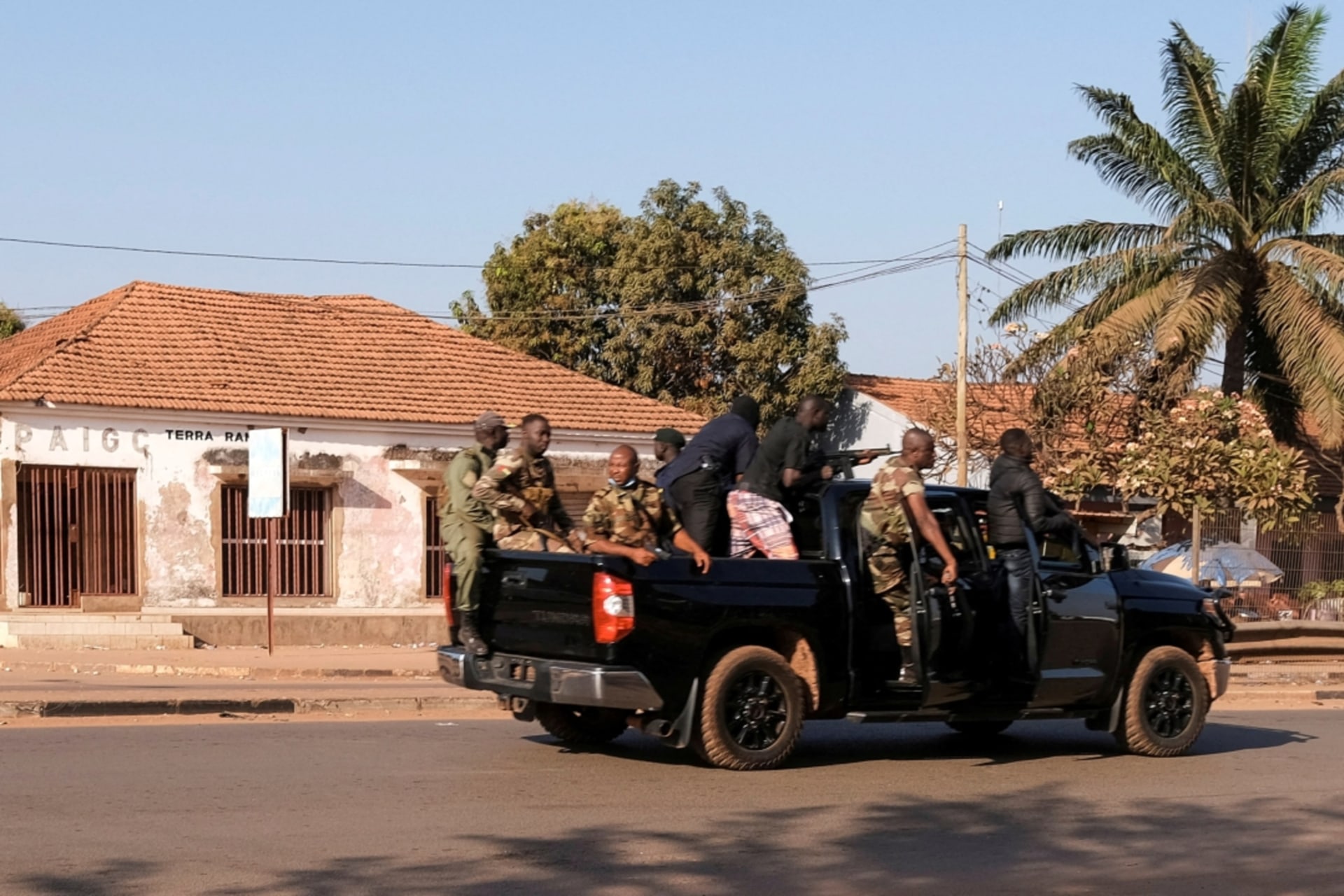Coup Contagion Spreads in West Africa Despite Civilian Support for Democracy
A rash of coups in West Africa is forcing a rethink in how Western countries have backed authoritarian governments in the name of stability.

By experts and staff
- Published
Experts
![]() By Michelle GavinRalph Bunche Senior Fellow for Africa Policy Studies
By Michelle GavinRalph Bunche Senior Fellow for Africa Policy Studies
The contagion of coups d’etat in the Sahel and West Africa shows no signs of slowing, with an attempted coup in perennially fragile Guinea-Bissau the latest installment in what could be a long saga. These alarming developments have rightly sparked soul-searching among supporters of democracy and questions about whether external actors—sometimes myopically focused on security assistance in the face of terrorist threats—have done enough to disincentivize soldiers from seizing control of the state. They call into question the role of the African Union and the United Nations in effectively protecting the principles they espouse.
All these issues deserve attention, but it will be important not to let a misread of popular sentiments drive policymakers toward the wrong conclusions. A regular feature of the latest rash of coups in Mali, Guinea, and Burkina Faso has been the spectacle of civilians celebrating in the streets. But while popular support for coups generates alarming headlines, it can be overstated—rarely do the disapproving but cautious civilians remaining in their homes get much news coverage. Yet polling shows that majorities of Africans support democratic governance, though many are dissatisfied [PDF] with the performance and integrity of their democracies.
More importantly, popular support for the region’s new military governments it is likely to be short-lived. The people celebrating military seizures of power are expressing relief that some change is afoot, because the trendlines in their country are negative. Many have lost confidence in their governments to deliver the security and economic opportunity they seek, so alternatives—any alternatives—to the status quo are welcomed. Hence the cheers upon a change of the regime.
But effecting change at the top is one thing, and delivering results is another. Unaccountable military governments are unlikely to be able to root out endemic corruption, generate vast numbers of new jobs for youthful and rapidly growing populations, or even transform the security outlook in the face of complex, boundary-spanning threats. Popular enthusiasm for newly minted juntas will wane when their governments continue to fail the citizens. Similarly, lasting popular support for new foreign partners, like the Russian-backed Wagner Group in Mali, will be contingent on real progress; it is unlikely that the Wagner Group has a magic formula for stabilizing the country. Those being lionized in the streets today could well find themselves vilified tomorrow, as frustrated populations continue their search for government that works.
